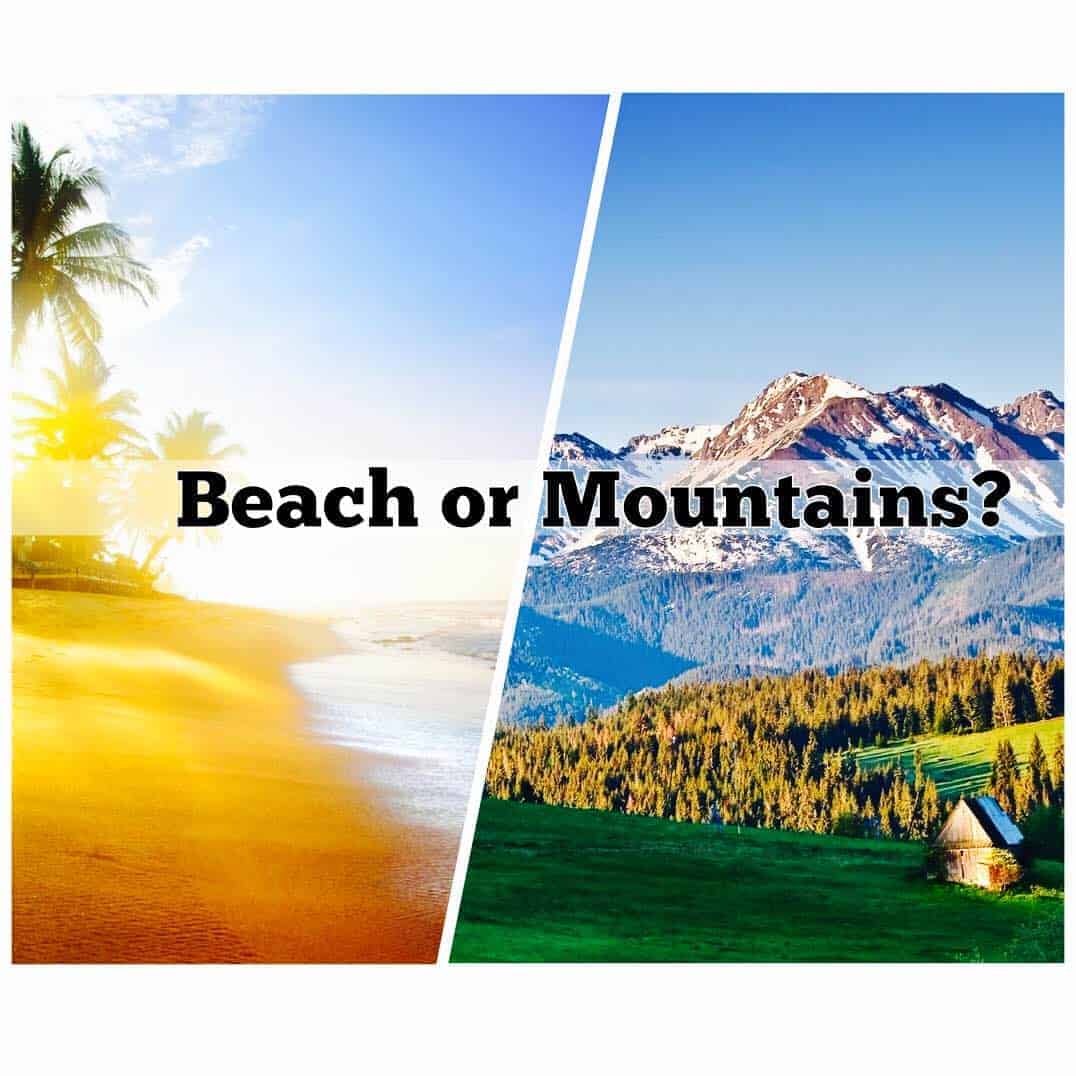Where you decide to spend your vacation may actually reveal something about your personality that you didn’t know. It seems that different types of personalities prefer different places for a relaxing getaway.
Your favorite vacation spot is probably your favorite because it helps relieve anxiety that you otherwise feel when you are not on vacation. The last thing you want on vacation is stress. Let’s examine what your favorite vacation spot reveals about your personality.
What Does Your Favorite Vacation Spot Reveal About Your Personality?
Introverts and Extroverts on vacation
Although any vacation seems like it should be good for our mental relaxation, for people who are introverted, they dislike the idea of a vacation spot on the beach. There may be multiple reasons for this but introverts tend to avoid the open feeling of a beach, crowded area, and knowing that they will be wearing a bathing suit in front of others can be something that produces anxiety for them.
The personality of extroverts is outgoing, friendly, and up to a challenge so the beach provides opportunities to be social as well as outdoor enjoyment. The beach also provides extroverts the opportunity to do several activities such as surfing, kayaking, snorkeling and watercraft activities. For introverts this can be overwhelming. They prefer to retreat to a quiet, undisturbed location.
In a study of introverts and extroverts, researchers tested the link between personality and geography. They found that ‘mountain-lovers were more introverted than ocean-lovers. People preferred the ocean over mountains when they wanted to socialize with others, but they preferred the mountains and the ocean equally when they wanted to decompress alone.’ Those who are planning to visit a national park and explore mountains and the wilderness may book national park hotels so it’ll be easier for you to explore the park.
The researchers also found that ‘this difference was explained in part by extroverts’ perception that it would take more work to have fun in the mountains than in the ocean.’
Beyond that, researchers then looked at people who live in mountainous regions of the United States. They found that ‘residents of mountainous U.S. states were more introverted than residents of flat states.’
And in a follow up study, they ‘tested the link between introversion and the mountains by sending participants to a flat, open area or a secluded, wooded area. The terrain did not make people more introverted, but introverts were happier in the secluded area than in the flat/open area, which is consistent with the person-environment fit hypothesis.’
You might be an introvert who wants to spend some time around others but you don’t like the feeling of being overwhelmed. If that is the case, read our guide 5 Recharging Techniques for Introverts.
Mountains or the beach? The person-environment fit hypothesis.
When you want to get away for a relaxing vacation, would you choose to go to a cabin in the woods or a sunny beach destination? The answer reveals quite a lot about your personality on the scale of introversion and extroversion. If you’re an introvert who wants to be able to relax and enjoy the beach, read our guide 5 Ways to Be An Extroverted Introvert.
The research around personality having an impact on where you prefer to be has to do with your perceived level of stress and how you manage that. Your environment can play a factor in how you perceive stress and you will be more likely to avoid places that you associate with a high level of stress.
The authors of another study of passion and the person-environment fit say that ‘The Person-Environment (P-E) fit approach proposes that the fit between individual characteristics and environmental contexts can have important psychological repercussions for the individual. A P-E fit is achieved when there is a match between personal characteristics of the person and characteristics of the environment.’
These researchers looked at personality and passion with regard to how we choose an environment that meets our desires, but that does not cause us an enormous investment of personal psychological resources. They hypothesize that ‘highly competitive environments that promote a rigid and inflexible type of persistence and involvement, and which require individuals to be overly involved in the activity at the expense of other life domains, can be seen as fitting well with an obsessive type of passion. Conversely, less competitive environments, while still being demanding, do not require an inordinate investment of time and energy in the activity. Such environments should fit better with individuals holding a harmonious passion who may have more diversified interests.’
When you go on vacation, the last thing you want is for there to have to be a significant psychological adjustment for you to make. You want to just be able to relax and decompress in your favorite vacation spot. This coping technique helps us choose the perfect vacation spot for us based on our perceptions of what will be the easiest and most comfortable environment.
The tendency to live and work in places that fit your personality makes sense. If you feel comfortable in the country, you would feel a lot of stress, pressure, confusion and anxiety by living in a dense metropolitan area. The same is true for where you spend your free time on vacation.

















